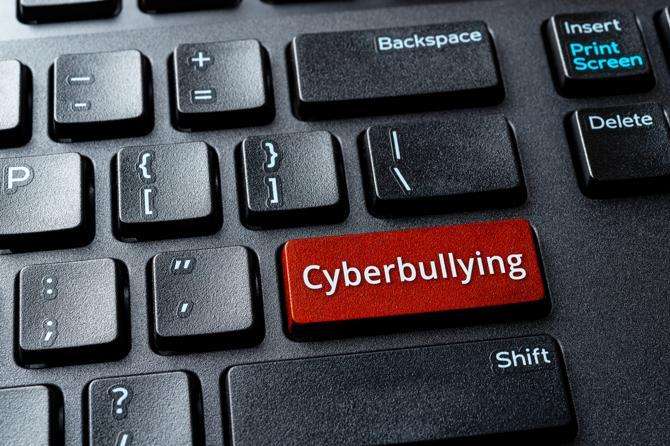The internet as a digital realm also harbors a darker side, where anonymity emboldens some to engage in malicious behavior. Cyberbullying, the relentless use of electronic communication to bully a person, particularly young people, has become a pervasive issue with far-reaching consequences.
The Many Forms of Cyberbullying
Cyberbullying can manifest in many ways, often blurring the lines between harmless pranks and attacks. Here’s a breakdown of some common forms:
- Social Exclusion: Deliberately excluding someone from online groups, chats, or social media circles.
- Mean-Spirited Messaging: Sending hurtful, threatening, or embarrassing messages via text, email, or social media platforms.
- Spreading Rumors and Lies: Fabricating and disseminating false information about someone online, damaging their reputation.
- Posting Embarrassing Photos or Videos: Sharing private or humiliating photos or videos of someone without their consent.
- Impersonation: Creating fake online profiles to impersonate the victim and damage their social standing.
- Doxing: Publicly revealing someone’s private information, such as their home address or phone number, online.
The emotional toll of bullying can be severe, leading to anxiety, depression, and even suicidal thoughts. It’s important to recognize the signs of cyberbullying:
- Withdrawal from Social Media: The victim might become withdrawn from online interactions or social media platforms altogether.
- Changes in Mood or Behavior: Sudden changes in mood, increased irritability, or a decline in academic performance can be indicators.
- Secrecy and Isolation: The victim might become secretive about their online activity or isolate themselves from friends and family.

Strategies for Self-Protection
Prevention is always better than cure. Here are some steps you can take to protect yourself from cyberbullies:
- Maintain Strong Passwords: Use strong, unique passwords for all your online accounts. Avoid using personal information or easily guessable words. Consider a password manager to help you keep track of complex passwords.
- Be Mindful of Your Online Footprint: Be cautious about what information you share online, especially on public platforms. Avoid posting sensitive information or embarrassing photos that could be used against you.
- Privacy Settings: Adjust your privacy settings on social media platforms to control who can see your profile and posts. Limit who can contact you and restrict messaging capabilities.
- Think Before You Post: Consider the consequences before posting anything online. Once something is online, it can be difficult to erase completely.
- Know Where to Report: Familiarize yourself with the reporting mechanisms on social media platforms and other online services. Report any instances of cyberbullying promptly.
- Build a Strong Support Network: Surround yourself with supportive friends and family members. Talk to them if you’re being cyberbullied. Don’t suffer in silence.
You are not alone. Cyberbullying is a serious issue, and there are people who can help. Don’t hesitate to reach out for support.
What to Do if You’re Targeted
If you find yourself targeted by a bully, here’s what you can do:
- Don’t Respond: Engaging with the bully might escalate the situation. Ignore their messages and avoid retaliating. Show them you’re not fazed by their attempts to hurt you.
- Block the Bully: Use the blocking features on social media platforms and messaging apps to block the bully from contacting you.
- Document Everything: Keep a record of all communications with the bully, including screenshots and timestamps. This evidence can be helpful if you need to report the cyberbullying to authorities or social media platforms.
- Report the Abuse: Report the bullying to the platform where it’s happening. Most platforms have clear guidelines against cyberbullying and take appropriate action against offenders.
- Seek Support: Talk to a trusted adult, friend, or family member about what is happening. Seek their support in dealing with the situation. Consider professional help if the cyberbullying is causing significant emotional distress.
- Involving Law Enforcement: In severe cases, involving law enforcement might be necessary. If the cyberbullying involves threats of violence, harassment, or doxing, report it to the police. The evidence you documented will be valuable in their investigation.
Bystanders: The Power of Intervention and Upstanding
Cyberbullying thrives in silence. Bystanders, those who witness cyberbullying online, have a role to play in combating this issue. Here’s how bystanders can make a difference:
- Speak Up: Don’t be a silent observer. If you see someone being cyberbullied, speak up in their defense. Leave a supportive comment or message for the victim.
- Report the Abuse: Report the cyberbullying incident to the platform where it’s happening. Bystanders reporting abuse can help hold bullies accountable.
- Show Support: Publicly show your support for the victim. Like or share their positive posts and encourage others to do the same. This can help counteract the negativity spread by the bully.
- Educate Others: Raise awareness about cyberbullying and its harmful effects. Talk to your friends, family, and classmates about online safety and responsible digital citizenship.
- Be a Positive Role Model: Set a positive example online by treating others with respect. Avoid engaging in gossip, negativity, or online spats that can contribute to a cyberbullying culture.
By taking a stand against cyberbullying, you can create a safer online environment for everyone.
Recovering from Cyberbullying
The emotional scars of cyberbullying can take time to heal. Here are some steps to consider on the road to recovery:
- Focus on Self-Care: Prioritize activities that promote your mental and emotional well-being. Exercise, relaxation techniques, and spending time with loved ones can be immensely helpful.
- Seek Professional Help: If the cyberbullying caused significant emotional distress, consider seeking professional therapy. A therapist can help you address the trauma and develop coping mechanisms.
- Rebuild Your Online Presence: If necessary, take a break from social media or create new accounts with enhanced privacy settings. Focus on building a positive online community of supportive individuals.
- Empower Yourself: Don’t let cyberbullying define you. Focus on your strengths and talents. Find positive outlets for self-expression.
You are stronger than the bully. With time and support, you can overcome the hurt caused by cyberbullying and emerge stronger.
Tools and Resources for Combatting Cyberbullying
Technology companies have a responsibility to create a safer online environment. Here are some advancements helping to combat cyberbullying:
- Advanced Reporting Systems: Many platforms are improving their reporting mechanisms, making it easier for users to report cyberbullying incidents.
- Artificial Intelligence (AI): AI is being used to detect and flag abusive content before it’s posted online.
- Educational Resources: Social media platforms and educational institutions are developing resources to educate users about cyberbullying and online safety.
Companies like Cronus Tech Offer Additional Support
While not a direct solution to cyberbullying, Cronus Tech can be a valuable asset in the aftermath. They can assist with:
- Digital Evidence Recovery: If the cyberbullying involved the sharing of private photos or videos, Cronus Tech can help recover deleted evidence that can be used to hold the bully accountable.
- Online Reputation Management: In cases where the cyberbullying has damaged the victim’s online reputation, Cronus Tech can help develop a strategy to rebuild a positive online presence.
By working together, we can create a digital world where everyone feels safe and respected. Remember, the power to stop cyberbullying lies within each of us. Let’s choose to be kind, stand up to bullies, and foster a positive online environment.



